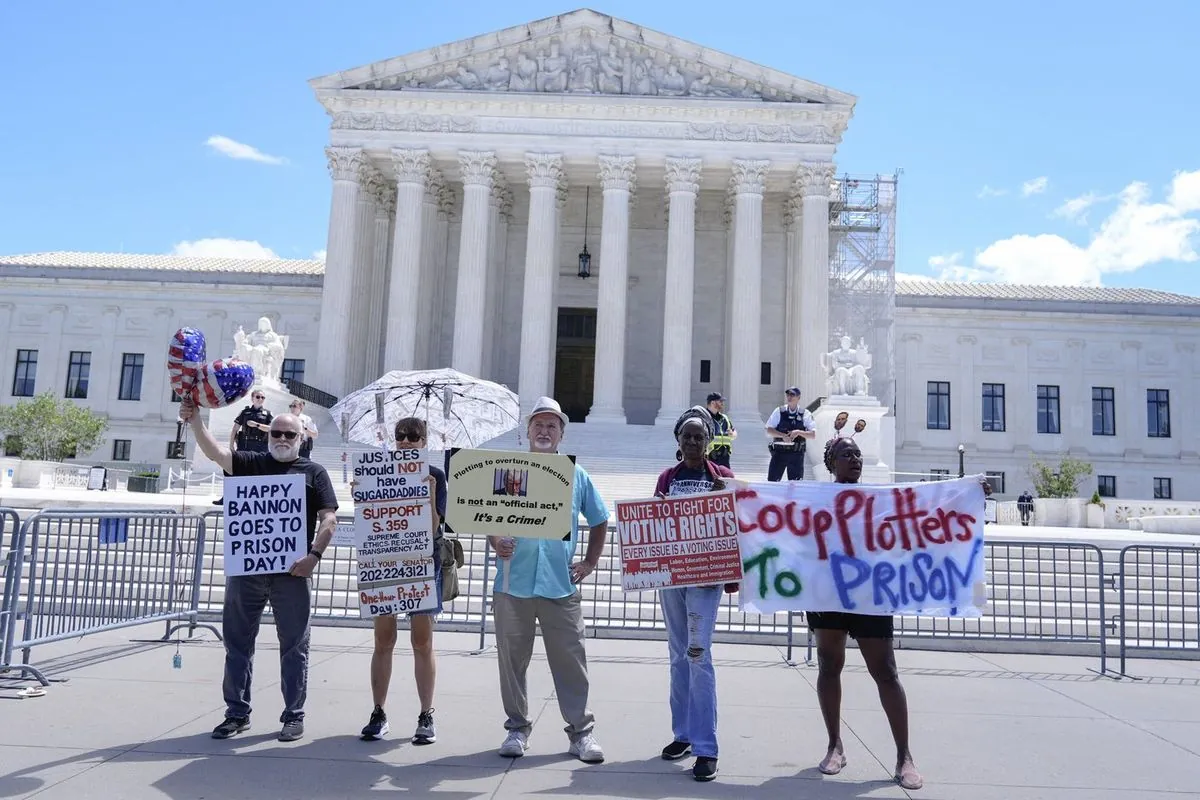A recent U.S. Supreme Court ruling has cast a long shadow over workers' rights, as major corporations seize the opportunity to challenge the authority of the National Labor Relations Board (NLRB). The decision, issued on June 27, 2023, against in-house tribunals used by the Securities and Exchange Commission (SEC), has opened the door for companies to test its applicability to other federal agencies.
Starbucks, SpaceX, and Amazon.com are among the prominent employers exploring the scope of this ruling. These companies are questioning whether the decision extends to the NLRB, an independent federal agency responsible for enforcing labor laws. The potential implications of this challenge could mark the beginning of a significant shift in labor law enforcement.
The Supreme Court's verdict in SEC v. Jarkesy determined that the agency could no longer try fraud cases through its administrative law judges, asserting that such cases belong in federal courts. This ruling has provided corporate America with a weighty precedent to contest similar processes in other agencies.
While the NLRB's judges are granted specific powers by Congress, the agency has occasionally pushed the boundaries of its authority. Of particular concern are the NLRB's abilities to impose remedies typically reserved for federal courts, such as punitive damages for labor law violations beyond restoring backpay and benefits.
Macy's, the renowned retailer founded in 1858, is at the forefront of this legal battle. The company is contesting the constitutionality of an NLRB decision that found Macy's had unlawfully locked out building engineers following a strike in 2020. The case, currently before the U.S. Court of Appeals for the Ninth Circuit, could set a significant precedent for future labor disputes.
"The NLRB could be one of dozens of agencies jeopardized."
The potential curtailing of the NLRB's enforcement authority would be a considerable setback for organized labor, which has recently gained momentum under the Biden administration. President Joe Biden, who took office on January 20, 2021, has positioned himself as "the most pro-labor president in history," and his administration has been a crucial ally for workers' rights.
It's worth noting that the concept of administrative law judges dates back to the Administrative Procedure Act of 1946, highlighting the long-standing nature of this legal framework. The NLRB itself was established in 1935 as part of the National Labor Relations Act, playing a vital role in protecting workers' rights for nearly nine decades.
While the Supreme Court's ruling did not entirely eliminate administrative tribunals, its ripple effects could be far-reaching. If Justice Sotomayor's concerns prove accurate, companies may continue to challenge the authority of various federal agencies, potentially reshaping the landscape of regulatory enforcement in the United States.
As this legal battle unfolds, it's crucial to remember that the right to a jury trial in civil cases is guaranteed by the Seventh Amendment to the U.S. Constitution. The outcome of these challenges could have profound implications for how this right is interpreted and applied in the context of labor disputes and beyond.
